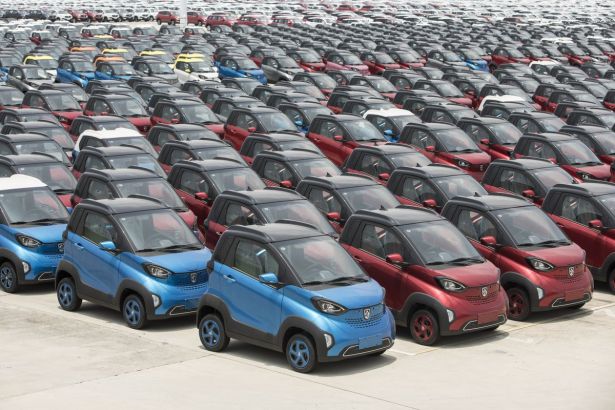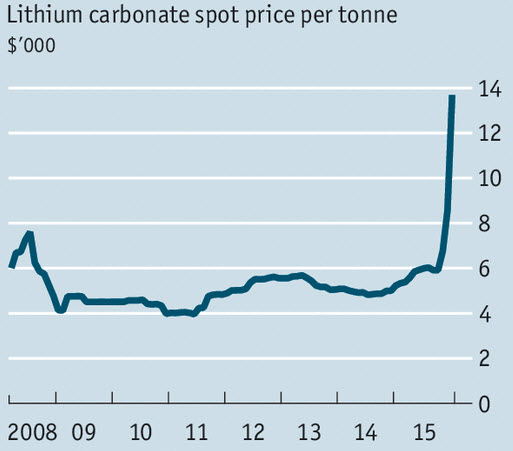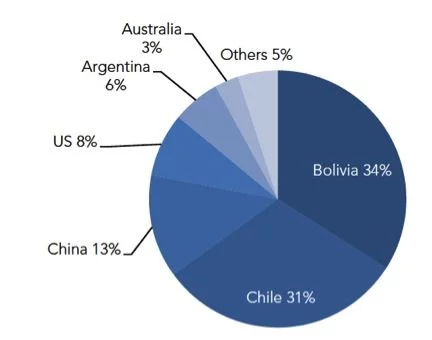Worldwide tension over lithium: What is it for?

The indiscretion created by the imperialist order prevents us from rejoicing at a cultural or technological development because they immediately return to the working classes as oppression.
We witness the transition from oil-based passenger vehicles, which have marked the last century, to electric ones. It is said that almost 6% of the cars produced in the coming year will also work with electricity.
However, an electric car needs lithium batteries, as many as to make thousands of mobile phones work, in order to cover a reasonable distance until it is recharged. This requirement makes lithium one of the most strategic mines in the world. In fact, lithium is claimed to be the oil of the 21st century.
The graph below showing the increase in lithium prices tells us the prediction may be correct.

Source: http://euanmearns.com/lithium-reserves-use-future-demand-and-price/
Lithium has a big part in the plans of Chinese monopolies and state.
First of all, although China is a huge oil consumer due to its giant industry, it lacks oil resources and aims to reduce its dependence on oil.
Second, we know that in the imperialist world, a rising state must offer a certain standard of living to the working people in order to avoid an uprising. However, the rapid capitalist transformation in China has polluted the air and water so much that it threatens the lives of the working people who have settled in the cities. They would prefer reducing emissions from oil-related transport.
But there is a third reason. One of the factors that make the capitalist order survive is its ability to make families purchase passenger cars. We cannot go into the details of the reality that consumes a significant amount of the world's resources here, but we should say that even China's domestic market is too big for electric vehicles.
There is also an overseas market. We should not just think of an electric car; the market for lithium batteries to be used in many electric vehicles is very large.
China has already established a monopoly in the lithium battery market despite its strong competitors. Chinese companies currently control 60% of the world's lithium battery production.
But how would the world have so much lithium? The chart below gives an idea of the distribution of lithium resources into national economies.

Source: https://www.greentechmedia.com/articles/read/the-geopolitics-of-lithium-...
As you may have noticed, China has considerably high lithium resources, and lithium does not run out like oil and can be recycled. However, China's own resources are not enough, and wherever there are lithium sources in the world, there are Chinese companies.
The lithium mines in Australia are operated by a Sino-Australian partnership.
One of China's main energy monopolies, Tiangi is said to have largely acquired shares of the company that operates its lithium reserves in Chile.
In Bolivia, on the other hand, the government's agreement with a Chinese company last February before the coup gave China a significant chance of controlling the huge reserves in the country.
However, monopolies like Tesla and General Motors in the United States also pursue lithium, and there is nothing they cannot do to prevent China's rapid entry into South America, which they are used to seeing as their backyard.
While the crisis of imperialist hegemony rises and reaches a critical point, the right to access and use lithium becomes a major area for tension.
The US-backed coup in Bolivia is naturally associated with lithium sources.
Given that it is a righteous resistance, some commentators question the uprising of the Chilean people for this reason.



